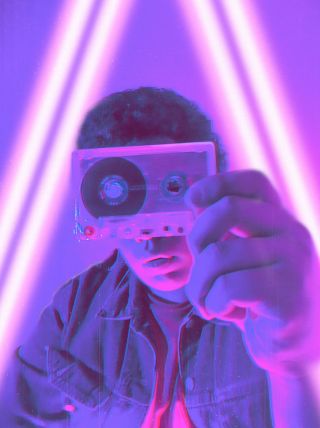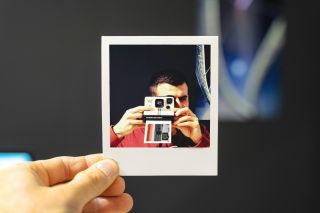Anxiety
What Can Gen Z Do About Skyrocketing Anxiety?
3 ideas for young adults who are struggling with anxiety.
Posted February 28, 2024 Reviewed by Davia Sills
Key points
- Recent surveys reveal that young adults self-report anxiety disorders at higher levels than older generations.
- Technology and uncertainty are driving forces in young people's anxiety rates.
- Managing tech use, focusing on in-person social experiences, and taking action can help ameliorate anxiety.
- In the face of anxiety and uncertainty, the majority of young people remain optimistic.

Gen Z are my people. I get annoyed when older generations write them off by making fun of their slang. I said things like “Gag me with a spoon,” so this Xennial is fully aware that he has no room to judge “rizz,” “bussin,” or “suss.” In fact, I love young people’s slang. No cap.
As a proud teacher of Gen Z and now Gen Alpha, I was bummed to read that over 60 percent of young adults have an anxiety disorder. Even when compared to previous generations at similar ages, that’s a significant increase in anxiety rates. One explanation is that younger generations are more self-aware and forthcoming about their mental health. However, there are still year-over-year increases in young adult and adolescent anxiety levels that are worth noticing and talking about.
Some explanations for this rampant anxiety include specific concerns like gun violence, politics, and economics. A broader explanation is that young people are concerned for their futures. They're coming up in uncertain times and constantly bombarded with news and social comparisons.
Gen Z came of age with smartphones, social media, and tablets firmly in hand. I didn’t get my first cell phone until I was almost 20, and it was definitely not smart. The desire for pre-tech times could be why young people are bringing the 90s and early 2000s back, longing for a simpler era many weren’t even alive to witness.
As someone who came of age in this simpler time but who somehow brought anxiety with him anyway, I feel for Gen Z and have some ideas for how to tackle the fear of the unknown.

1. Make Tech-Free the Game
The hit sitcom Friends is wildly popular with the younger set. It’s an example of that Gen Z nostalgia for simpler times. Ross, Rachel, Monica, Chandler, Phoebe, and Joey weren’t constantly on their phones. They were in the moment, usually at Central Perk. They were focusing intently on each other and helping each other maneuver through young adulthood.
I’m not suggesting we all throw our cell phones in the dumpster, but aspiring to low-tech social experiences can become a game unto itself.
I deleted all social media and email apps from my phone and started charging it in another room at night. I’m still plugged in in a way that the Friends would find baffling, but at least I’m aiming for a less tech-obsessed daily experience.
Put your phones in a lockbox, create a swear jar for phone checking instead of cursing, or see how long you can venture into the world sans technology.
2. Shift Your Focus
Being so plugged in so often means we’re spending less time hanging with people IRL. And when we do socialize, our attention is divided and distracted like never before. Most of us know we should be more in the moment but might not know how.
It seems counterintuitive, but improv gives us a blueprint for increasing mindful focus. My background is acting and improv followed by a doctorate in theatre history and a dissertation and academic book about how improv affects the mind followed by this Psychology Today blog and a mainstream book about how to use improv tenets to be less anxious. I went down this path because my moon sign is anxiety with ruminating rising.

Studies show that improv reduces anxiety and improves uncertainty tolerance. One aspect of improv that seems to play a role in this effect is improv’s “Yes, And” principle. In simple terms, the idea is that you should agree with your scene partner’s idea and then add more detail to the scene. As a general theatre rule, “Yes, And” makes sense. If someone says, “My dad just died,” and their stage partner responds with, “You don’t have a dad,” they have to spend precious time trying to sort out who’s right and what the heck is going on in the scene. Onstage, this feels insufferable. I’m sweating right now just thinking about the discomfort.
On the other hand, if that stage partner had responded with, “Carl can’t be dead! He was the healthiest man I’ve ever known,” it would have saved both improvisers from unnecessary confusion.
But improvisers aren’t the only ones who can use this “Yes, And” trick to keep things moving and avoid getting stuck. We can do this in real life. When a co-worker raises their voice or a family member tells me a hard truth about myself, I can tailspin (tailspinning is always an option), or I can agree with the reality at hand and find a path forward. Yes, my co-worker is going through it. Yes, I’m defensive. And now what?
When used strategically in real life, “Yes, And” can be a tool to help build resilience. Improv also helps reduce anxiety and boost our acceptance of the unknown because we get rewarded for putting ourselves out there and making bold choices. We get rewarded for uncertainty.
When I tell people that improv helped me feel less anxious, most people respond by saying that just thinking about doing improv makes them break into a cold sweat. But that initial anxiety is part of its effectiveness. People bring their preconceived ideas, overthinking, fears, and worries to their first improv class and usually discover they were wrong. Not only can they survive, but they usually have fun while playing improvised games with the strangers in their class. “Yes, And” helps them feel confident that there’s always a path forward, and the rule that it’s your job to make everyone else onstage look good and feel supported helps everyone up there look better and feel more supported.
Imagine if we were all out here in the real world supporting each other and trying to make each other excel.
You can bring some of that improv exposure therapy to your everyday life. Challenge yourself to talk to at least one stranger at the dog park or grocery line next time. Make a game out of your next conference by trying to find a shared interest with at least 10 people. Give yourself a specific purpose while mixing and mingling to help get your mind off your preconceived notions about how your interactions might go.
All the times I’ve done this, I’ve been pleasantly surprised by how pleasant it’s been. None of my worst fears have ever come true, and when things do go badly and someone’s rude to me, my brain has already prepared me for it, which means I have survived to tell the tale every single time.

3. Why Don’t You Do Something?
I’ll admit that Gen Z has way more to be anxious about than I ever did. They come by their anxiety honestly, as a baby boomer might say. Global warming and the ensuing climate calamity, the economy, mass shootings, political unrest, and global crisis after global crisis are all they’ve ever known. When the Friends’ friends sat around sipping their coffees at Central Perk, they weren’t getting New York Times notifications on their phones. Now, it feels like we can’t escape our digital doom pings, and this colors how much we worry and how connected we are with the people around us. It’s hard to sip your latte and enjoy the moment while constantly being bombarded with news that the world is on fire.
In addition to ditching the smartphone, turning off notifications, or deleting anxiety-provoking apps, you can take action. As millennial Britney Spears wisely asks, “Why don’t you do something?”
Taking action, even small steps toward solving big problems, can help us feel less powerless, stuck, and anxious. Fundraise, volunteer, protest, start an organization or coalition. But get old-school and do these things face-to-face whenever possible. Then you’re killing two birds with one stone. You’re trying to foster authentic connections with others while trying to fix the dumpster-fire world older generations (myself included) have left you.
Yes, the world’s a shitbox, and what are you going to do anyway to fix it and feel more connected and empowered?
The Silver Lining
The good news is that 75 percent of young people feel optimistic about the future. It’s no small feat to be both terrified and hopeful about what’s in store, but Gen Z seems to have that on lock. No cap.
References
Diaz, A. (2018, October 30). Generation Z reported the most mental health problems, and gun violence is the biggest stressor. CNN. https://www.cnn.com/2018/10/30/health/generation-z-stress-report-trnd/i…
Drinko, C. No joke: Improv comedy reduces Social Anxiety | Psychology Today. Psychology Today. https://www.psychologytoday.com/us/blog/play-your-way-sane/202301/no-jo…
Felsman, P., Seifert, C. M., Sinco, B., & Himle, J. A. (2023). Reducing social anxiety and intolerance of uncertainty in adolescents with improvisational theater. The Arts in Psychotherapy, 82, 101985.
Felsman, P., Seifert, C. M., & Himle, J. A. (2019). The use of improvisational theater training to reduce social anxiety in adolescents. The Arts in Psychotherapy, 63, 111-117.
Gillett, K. (2021, July 5). Why TV show “friends” is extremely popular among Generation Z. The National. https://www.thenationalnews.com/arts-culture/television/why-tv-show-fri…
O’Connell-Domenech, A. (2023, October 2). Over 60 percent of Gen Z have an anxiety disorder. The Hill. https://thehill.com/changing-america/well-being/mental-health/4234365-o…
Shoichet, C. E. (2023, September 14). Is gen Z thriving? not so much, according to a new study. CNN. https://www.cnn.com/2023/09/14/health/gen-z-mental-health-gallup-wellne…




